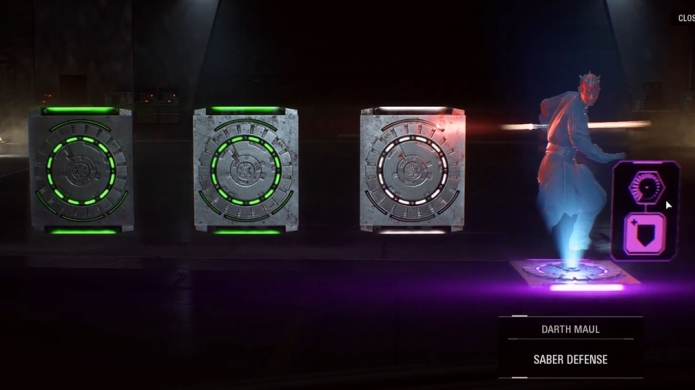Update (22/11/17): After announcing that it would be launching an investigation last week, the Belgium Gaming Commission has announced that it now deems video game loot boxes as a form of gambling.
Initially, the Belgium Gaming Commission was investigating the crates obtained in games like Overwatch and Star Wars Battlefront II. Today, Belgium news outlet, VTM News, reports that the commission has come to the conclusion that “the mixing of money and addiction is gambling”. Adding that “mixing gambling and gaming, especially at a young age, is dangerous”.
Belgium will be escalating this debate to the European Commission, in an attempt to get bans placed on games that sell randomized loot boxes.
Original Story (16/11/17): Last year, loot boxes in games were called into question in the wake of the CS:GO controversy. Since then, major Triple A releases have begun adopting similar systems, with the most recent example being Star Wars Battlefront II. This has once again, struck up the ‘are loot boxes gambling' debate, prompting an investigation from the Belgian Gaming Commission.
In Belgium, the regulatory body will begin investigating whether or not the loot box systems in Overwatch and Battlefront II should be classed as gambling. The UK government recently did something similar, though the response was somewhat evasive, offering no specific stance on the matter.
Right now, the general director of the Belgian Gaming Commission, Peter Naessens, spoke with a local news outlet confirming that an investigation would be taking place. Specific details are still thin, but if Belgium does move to rule these systems as a form of in-game gambling, then it would have a major impact on the gaming industry at large.
Overwatch typically hasn't been roped into the loot box/gambling conversation too much. However, in China, the company was forced to disclose the odds of receiving specific rewards when opening loot boxes. The way you purchase loot boxes also had to be retooled to comply with Chinese laws.
KitGuru Says: It could be a while before we see a resolution to this. Personally, I don't see loot boxes as gambling unless there is some way to ‘cash out' afterwards and make real money back on in-game items. However, many see the situation differently. These systems are certainly designed to attract those who may be vulnerable to gambling, but without some form of monetary reward, it could be difficult to rule it as such.
 KitGuru KitGuru.net – Tech News | Hardware News | Hardware Reviews | IOS | Mobile | Gaming | Graphics Cards
KitGuru KitGuru.net – Tech News | Hardware News | Hardware Reviews | IOS | Mobile | Gaming | Graphics Cards




I do not think it would be considered gambling. Well unless the the meaning of it has changed over time. When you buy loot boxes you are buying a sure thing as in you know what to expect when doing it. When you are gambling you are putting your money on something but it is not a sure thing you could win or lose. If you win you get a reward back if you lose you are out that money you just spent.
Now I am all for these loot boxes and micro transactions to be removed from the games I think it is a bad move for the industry and where it is heading. It is only a matter of time before it becomes so bad that you will go out spend the money to play the game but if you want to complete it you will have to spend a lot more on the game if you want to move forward in the game. Battle front 2 is the next step as they have gotten a bit braver with the whole thing and that is why everyone is in a uproar about it.
The problem I have is sure everyone is upset now but in a few weeks the dust will settle and it will be forgotten and hardly talked about. Then in the near future another game will come out and it will be even worse and most people will hardly even notice. Then is a few years it will be common practice to go out buy the game for $50-$100 and then be expected to pay even more to complete the game and of you don’t you are stuck and can never finish it unless pay $100-$200 more while playing.
These companies will be the big losers when that happens because more and more people will just pirate the game and play for not only free but also the whole loot boxes and micro transaction system will be disabled. These companies are only looking at the short term of it all they need to look at the whole picture and how their actions will effect their bottom line down the road if they continue on this crappy path.
So, acording to your definition, its not gambling playing on a slot machine if everytime you roll it you get a lollipop as a bonus….
means they could be classed as ransom ware ..?
Well if you are inserting money into a machine and hoping to hit the big one and getting cash back as a reward then that is gambling. If these games have that setup then that is gambling if there is a chance you will not get anything back as a reward.
If they have it setup in the game that you play a slot wheel sort of thing after spending money to use it but you are guaranteed to get something back but it depends on where the in game wheels stops but you always get something back just that it could be a big item or just a smaller item.
That could be very loosely considered gambling but you are always ging to get something back. in a real slot machine there is no guarantees that you will get anything at all and most likely won’t. So it would be considered borderline gambling if these games do it the way I stated here.
I am all for us finding ways to force these game companies to remove this crap. These pay walls are nothing but bad news and as time goes by it will only get worse for us the end users.
I am not sure maybe it could be if it holds your game ransom as in not allowing you to finish it until you buy into the pay wall and get the required stuff to finish the game. Like I said I am not sure on that at all.
Everytime you buy a loot box you don’t know what you’re gonna get.
It can be the lollipop or the item of your dreams.
This causes adiction and you’re always want to buy more, because every time you wait to see what you getting there is a rush of adrenaline. If it was putting real money to buy an specific item, it would be less bad in my opinion, but whats happening now its you buy a crate or a deck of cards that have the chance of giving you the item you want.
This is pure gambling, and it needs to stop.
They use phycology and neuroscience to design these systems and that alone would mean they’re banned. You’re literally cohercing people into buying your stuff. It’s not like bartering, or special offers, but significant psychological cues and systems designed to make you want to buy.
It’s disgusting and should be stopped. There’s no argument against this that will win.
You are not buying a sure thing.; You get some randow item, which you might already have. Making the purchase useless.
The definition of gambling is take to “play games of chance for money (or monetary value); bet.” or a “risky action in the hope of a desired result.” Loot boxes are definitely risky actions in the hopes of a desired result, as a game of chance. Monetary value is debatable, but could potentially be worked out in a bracket of upper and lower values based on how much the loot boxes cost in real world money versus the statistical chance of getting the desired item.
Honestly, every time a loot box is bought, you’re betting that you will get a specific item or category of item. If you don’t get that item, it harbors the same addict-inducing behaviour that will prompt another bet until you get the desired effect. The only true difference is that you’re guaranteed to get something of minimal value back within a loot box, but does that truly offset the definition of gambling? Well, that’s subjective.
On the footnote KG there ARE ways to cash out after winning these items. Especially with CS:GO or other AAA titles such as PUBG there are 3rd party sites where you can sell these items to other users or to the websites themselves. I use one called OPSKINS, and albeit that the website cannot be held directly responsible, they are an avenue where someone can sell items on especially if someone manages to get on of the much rarer loot items that have significant value to them. So I think you really should change the editorial view of whether or not you see loot boxes as a form of gambling.